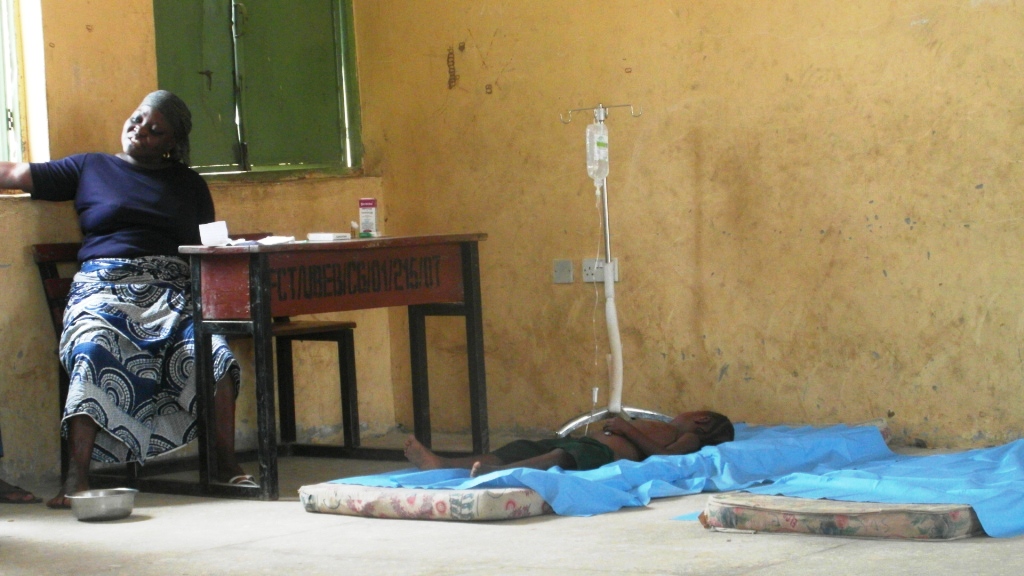Nigeria yet to fulfill 15% health budget allocation 2 decades after – Report
A new report released by the Partnership for Advocacy in Child and Family Health at Scale project ( PACFaH@Scale) has revealed that Nigeria is yet to implement its pledge to allocate 15% of its annual budget to the health sector, 20 years after it made the pledge. The project is implemented by 23 Nigerian health […]

In Gaye, Abuja, a mother watches over her daughter infused for malaria in a repurposed classroom by doctors on outreach. CHIPS hope to bring free health care to communities such as Gaye.
A new report released by the Partnership for Advocacy in Child and Family Health at Scale project ( PACFaH@Scale) has revealed that Nigeria is yet to implement its pledge to allocate 15% of its annual budget to the health sector, 20 years after it made the pledge.
The project is implemented by 23 Nigerian health advocacy civil society organizations and anchored and coordinated by the (dRPC) which builds capacity for the expansion of social capital and accountability in the country.
- FIRS gives MDAs 6 months to clear tax liabilities
- Insecurity: US Secretary of State to meet Buhari today
On April 27, 2001, African Heads of States at a summit hosted by Nigeria in Abuja promised to allocate 15% of their total budget to health. Since then some countries in the region have implemented the pledge popularly called the ‘Abuja Declaration.’
The commitment was made to improve healthcare and resources across the continent.
The new PACFaH@Scale report showed that the federal government had not fulfilled this promise in its budgetary allocation to the Federal Ministry of Health and its agencies between 2001 and 2021. The report showed that the average budget allocation to the sector is about 4.7% in the last 20 years.
The report said the highest budget allocated to the health ministry in the last two decades was in 2012 when 6.08% of the budget was allocated.
This translates to 4.69% and falls short of the 15% commitment by 10.31%.
The country’s allocation to health for the 2021 fiscal year amid the COVID-19 pandemic is 4.5%.
